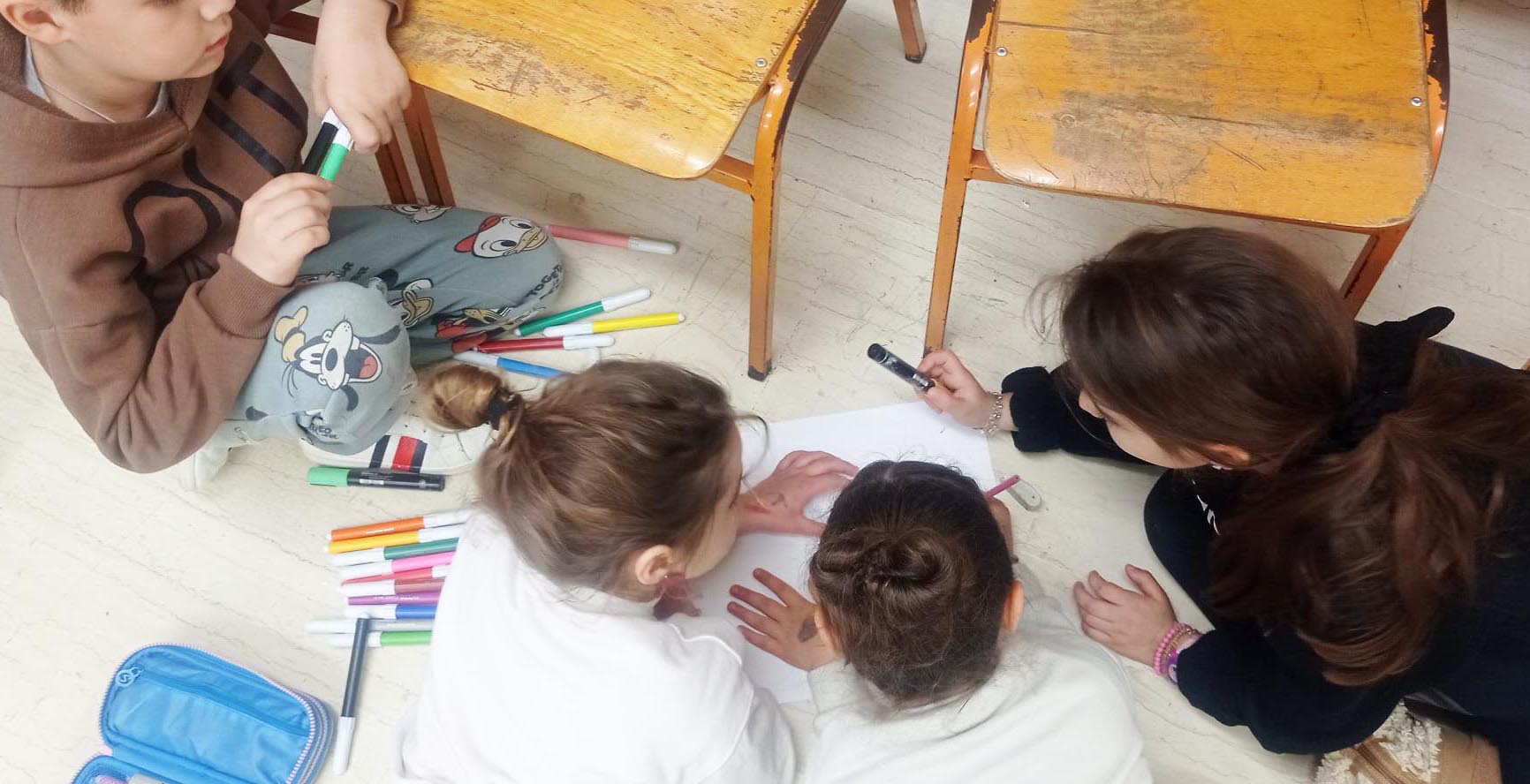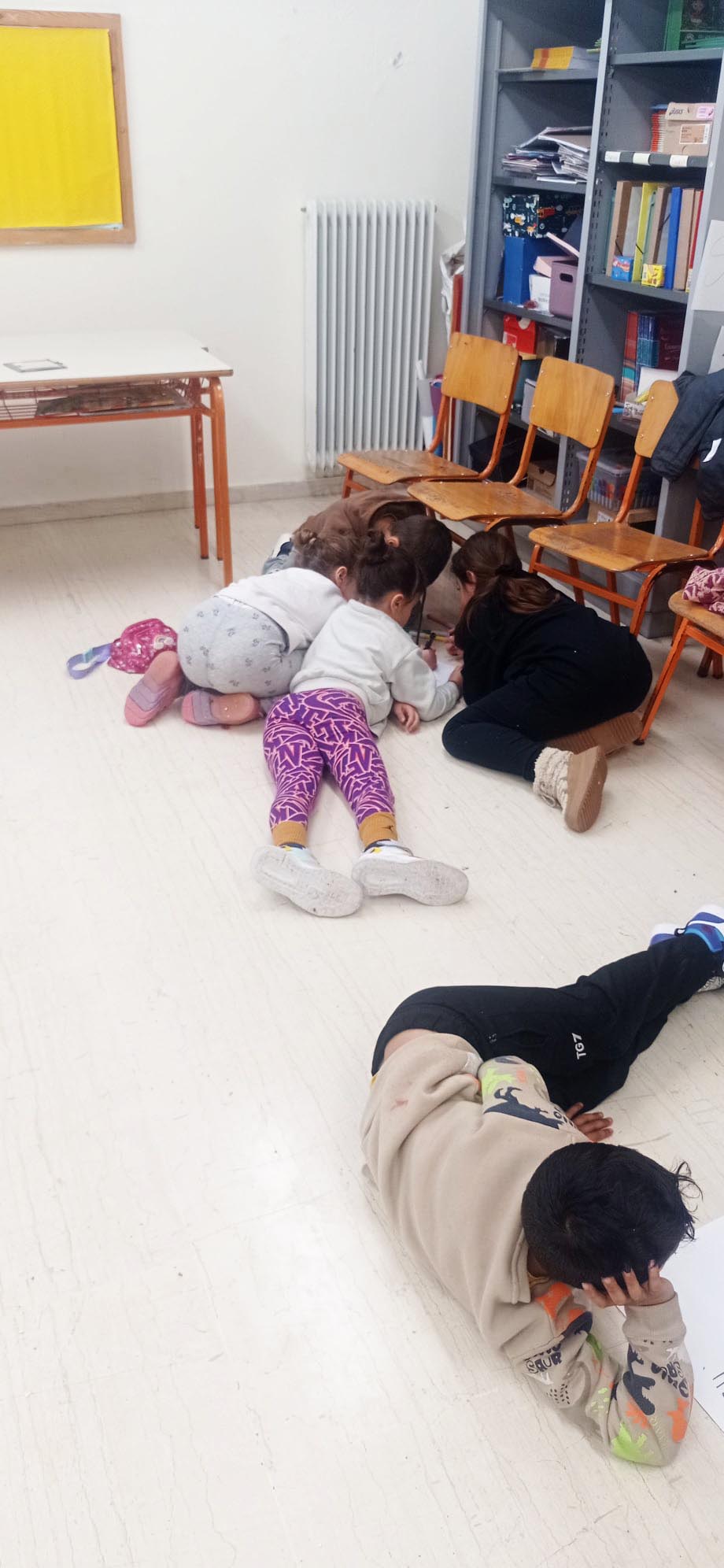Pilot application of the “A Hopeful, Healthy, and Happy Living and Learning Toolkit” as part of the MENTALITY program
May 14, 2024
The European MENTALITY project is piloting recognized European practices aiming to improve the mental health of vulnerable populations.
In Greece, Prolepsis Institute collaborates with teachers and school principals to implement the guide, entitled “A Hopeful, Healthy, and Happy Living and Learning Toolkit”. This Good Practice aims to promote the holistic well-being and personal development of children, providing them with valuable resources to lead a balanced and harmonious life.
Ms. Natalia Daskalopoulou, one of the teachers who utilizes the tools and activities of the guide in her classroom, shared her experience of implementing the MENTALITY project at the 3rd Primary School of Nea Alikarnassos, Heraklion, Crete, Greece and its contribution to strengthening mental health of students.
What is the impression you have so far from the implementation of the guide “A Hopeful, Healthy, and Happy Living and Learning Toolkit” in your classroom?
I believe that the guide is a very useful tool for every teacher, both for classroom management in a general context, and for dealing with more specific conditions. It includes very interesting and “smart” activities for children and at the same time easy to use and very informative in terms of their implementation by the teacher.
Implementing the guide in my own class, I feel that it has helped us as a whole in managing our emotions and relationships and is constantly helping us to build resilience and develop the skill of empathy. In addition, it works supportively in the resolution of conflicts, as well as in their prevention.
The activities included in the guide are particularly appropriate and, with the right handling, can motivate even introvert children to join the group, feel the freedom to express themselves and connect with the other members. The circle work suggested at the outset is particularly important in my opinion. In this way, the functioning of the group is improved and the educational process itself is facilitated. In addition, the fact that it is well written, clear and analytical helps the teacher to organize his thinking and prepare his actions, with the result that the children also respond better within an organized and clear framework.
What is the response of your students to the guide’s exercises you have implemented?
The response of my students to the guide’s exercises is particularly positive. They treat them as a pleasant, playful process through which they gain useful knowledge. Most children like the activities we have done so far and find in them an opportunity to open up more and more and express what they feel. Children with more introvert characteristics, although being quite reserved at first, by taking part in the activities either as active members or as observers, makes them leave behind the hesitation and denial and ask to join the group.



Have you received any feedback from parents of your students about implementing the guide in your classroom?
As a teacher, I make sure to maintain a close relationship with the parents of my students, as I believe that we must work on a common line and of course I want both sides to be aware of the emotional fluctuations of the children, the changes in their lives (at home but also at school) and in their behavior.
The feedback I have received from parents regarding the management of crises in the classroom, the relationships between students, but also the personal development of each child is particularly positive and their comments show that they are very satisfied with the implementation of the guide. In fact, with some of them I share techniques from the guide that I use in the classroom and they apply them themselves at home, enhancing the results even more.
How do you think the guide might help your ability to meet the mental health needs of your students?
The guide has definitely helped me a lot in classroom management and improved my ability to respond to the mental health needs of my students. It is a tool that offers you technical and practical ways to approach the emotional world of children, gives you directions and frameworks to be able to put your ideas into practice and really strengthen the mental health of children. Applying the guide and working with the team, I am often surprised by the response. Often, I have to be more flexible and over time I gain more experience in responding in a better way to the children’s needs.
How do you think the guide can help students’ personal development and overall mental health?
Through the activities of the guide, the children familiarize themselves with methods of managing their emotions, while with self-control techniques, they strengthen their mental balance and resilience. In addition, they practice on cultivating empathy and crisis management. Their participation in the group, in a space of mutual trust and respect, is also something that helps to empower them and practice the free expression of feelings. All of the above is particularly important for the personal development and overall mental health of the students and helps them to cope with their daily life, as well as, in more difficult situations that may arise.






